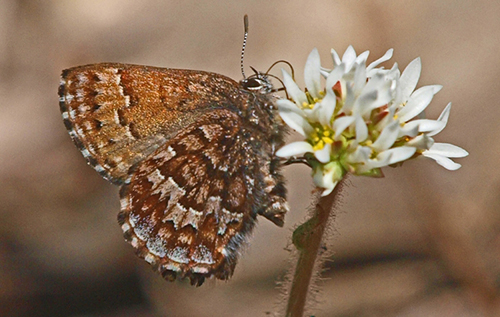A class of pesticides (neonicotinoids) has recently been implicated in the decline of pollinators and a group of birds called aerial insectivores. The Conservation Department staff and Environmental Policy Committee are working to become better informed regarding the issue of neonicotinoids (neonics) and the current science regarding their effects on wildlife and the natural environment so that we can evaluate the current status of neonic use and impacts in New Hampshire and potential strategies for becoming engaged in this issue.
Neonicotinoids are the most widely used class of insecticides across the globe. They were designed as a safer alternative to previous insecticides because their targeted application to seeds eliminated the need for spraying foliage. Several of the characteristics of neonics once considered beneficial are now triggering concerns regarding their negative effects on the environment – their potency at low concentrations, their persistence within plant tissues and soil, and their systemic action.
Systemic pesticides, unlike contact pesticides, are taken up by the plant and incorporated into all of the plant tissues. The toxin remains within the plant for many weeks. When digested, the neonics affect the central nervous systems of insects, eventually leading to death. Most neonics show lower toxicity in birds and mammals than in insects, because they block a specific neural pathway that is more abundant in cold-blooded animals. However, higher order wildlife can be affected in other ways, such as decreased food availability for pollinators and insectivores and surface and ground water contamination. More and more, people are posing this question – are the most commonly used insecticides causing the decline in pollinators and other wildlife?
Project Leader: Vanessa Jones
- ConservationOur work in conservation science:Bald EaglePeregrine FalconNorthern HarrierCommon NighthawkSwallows, Martins and SwiftsWhip-poor-willsGrassland BirdsRusty Blackbird ResearchAmerican PipitsCoastal ShorebirdsThe State of the BirdsMotusFarrar Farm Wildlife Crossing ProjectDragonflies and DamselfliesPollinatorsPhenological Monitoring ProjectRaptor MigrationConsultingPublications & Past Projects
Explore our birding-specific websites:
- Education
- Policy
- Lands
- Centers and EventsCentersEvents
- About Us


